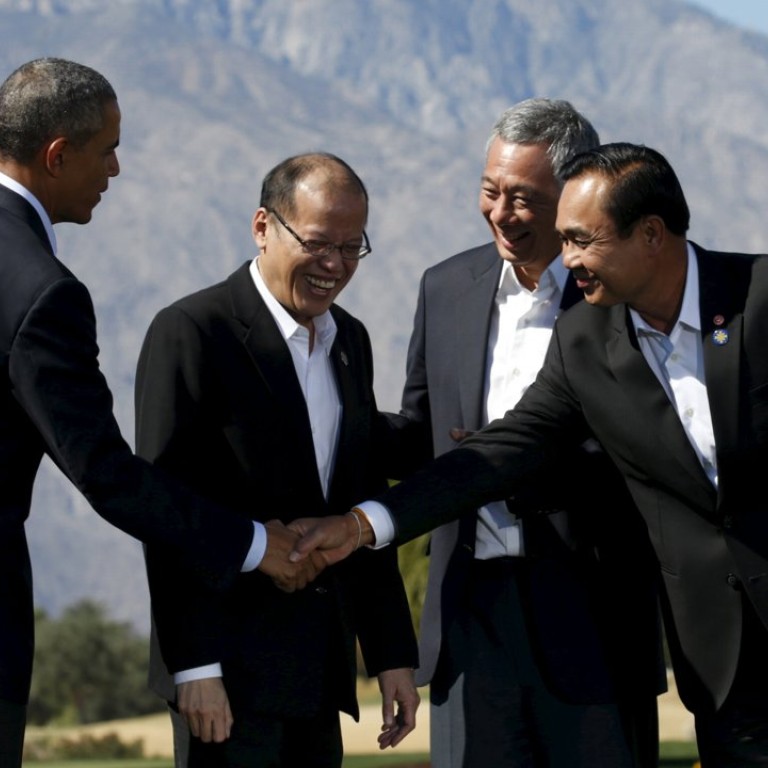
Obama and Asean leaders say South China Sea disputes must be resolved under UN rules
US President Barack Obama and the leaders of Southeast Asia called on Tuesday for peaceful resolution of the region’s maritime disputes as they concluded a summit in California.
Obama told a news conference that disputes must be resolved by legal means, including a case brought by the Philippines challenging China’s sweeping claims over most of the South China Sea.
China has refused to take part in the proceedings, but Obama said parties to the UN law of the seas are obligated to respect the ruling, expected later this year.

But the leaders’ joint statement after two days of talks avoided direct reference to China, reflecting the careful path that Asean members tread in their diplomacy with the world powers.
The statement called for a commitment to “peaceful resolution” of disputes and “the rights of freedom of navigation and overflight”.
“Any disputes between claimants must be resolved peacefully through legal means such as the upcoming arbitration ruling under the UN Convention of the Law of the Seas, which the parties are obligated to respect and abide by,” Obama said of the joint statement.
China says it has a historical right to virtually all of the South China Sea and has built seven artificial islands, some with airstrips, to assert its sovereignty. Taiwan and Asean members Brunei, Malaysia, Vietnam and the Philippines also claim land features in these potentially resource-rich waters, an important thoroughfare for international shipping. The other Asean members are Indonesia, Singapore, Thailand, Laos, Myanmar and Cambodia.

Obama said the US will continue to fly, sail and operate wherever international law allows, and it will support the right of other countries to do the same.
The US has long argued for the maritime rights issue to be resolved peacefully and is looking for Asean to take a unified stance on the issue.
The diverse group of countries includes governments that lean toward either Washington or Beijing. Only four ASEAN members are South China Sea claimants, leading to sometimes conflicting views on how to handle long-simmering rifts.
“Here at this summit, we can advance our shared vision of a regional order where international rules and norms, including freedom of navigation, are upheld and where disputes are resolved through peaceful, legal means,” Obama said Tuesday, at the opening of the summit.
Le Luong Minh, a Vietnamese politician and chairman of the association, said the US is one of Asean’s “important dialogue partners”. He called the summit an “excellent opportunity to exchange our views” on important issues.
Malaysian Prime Minister Najib Razak said Asean leaders hope Obama’s attention and priority toward the Southeast Asian grouping will be continued and sustained by future US presidents, Malaysia’s Bernama news agency reported. He said the Asean leaders acknowledged that the grouping’s relationship with the US was as important as its relationship with China.
The leaders concluded the summit by posing for the traditional family photo on the plush lawn outside a historic residence at Sunnylands, the storied California desert estate where the talks were held. Sunnylands is also where Obama had his first formal meeting with China’s president, Xi Jinping. As the leaders walked off, Obama was heard to thank each one for attending.

